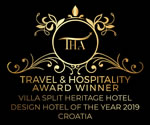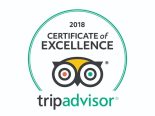Le città
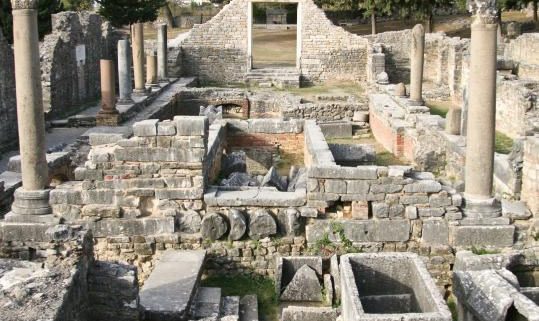
Salona
La città di Solin, culla della storia anticocroata, situata sul fiume Jadro, chiamato anche il Giordano croato, demograficamente la città più giovane della Repubblica di Croazia, nasconde un ricco patrimonio culturale e naturale che la rende una destinazione turistica interessante.
A Solin si trova il più antico santuario mariano della Croazia, fondato dalla regina Jelena oltre 1000 anni fa, la cui chiesa custodisce il suo epitaffio, visitato nel 1998 dal Santo Padre, papa Giovanni Paolo II.
Nel cuore di Solin viene nascosta l’antica Salona, una volta la capitale della provincia romana della Dalmazia e il parco archeologico più grande della Croazia, su cui grandezza testimoniano le mura magnifiche con le torri e i portoni, un foro coi tempi, un anfiteatro e dei cimiteri coi martiti salonitani (Manastirine, Kapljuč, Marusinac). Secondo la leggenda, questa città, con oltre 60 000 abitanti, è ritenuta luogo di nascita dell’imperatore Diocleziano.
Oltre a Solin, i Suoi padroni di casa Le faranno vedere volentieri anche i residui del complesso detto Gradina (fortificazione), risalenti all’epoca dei Turchi, il mulino di Gašpić (Gašpina mlinica) dal secolo XVIII, dove i visitatori possono godere e ammirare il mulino e i vecchi attrezzi, insieme alla Chiesa cava (Šuplja crkva), basilica in cui nel 1076 il re Zvonimir fu incoronato re di Croazia e Dalmazia, e il più grande acquario della Croazia, situato sulla penisola di Vranjic.
Oltre al fiume Jadro, che sorge ai piedi del Mosor ad un’altitudine di 35 metri s.l.m. e sfocia nel golfo di Solin dopo un corso lungo di 4,5 chilometri, e in cui acque vive la Trota illirica, sottospecie endemica (Mekousna pastrva), Solin vanta un ricco patrimonio naturale e organizza varie manifestazioni allo scopo di interpretare il patrimonio culturale della città. Se decide di soggiornare a Solin, può trovare l’alloggio presso alberghi, ostelli oppure appartamenti privati. Una ricca offerta gastronomica, su cui particolarmente spicca la trota, può essere assaggiata nei nostri ristoranti in un ambiente tranquillo, lungo il fiume Jadro.

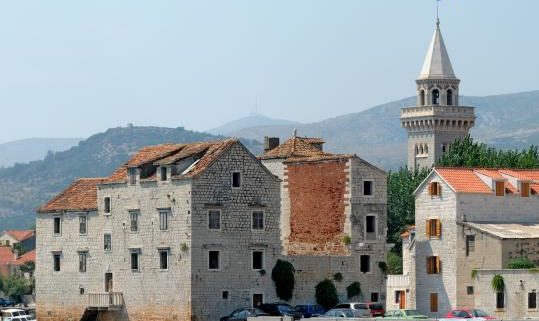
Castelli (Kaštela)
Kaštela è il nome di sette pittoreschi paesi della Dalmazia centrale, tra le città di Spalato e Traù, che si affacciano sulla costa del Golfo di Kaštela: Štafilić, Novi, Stari, Lukšić, Kambelovac, Gomilica e Sućurac.
La storia di Kaštela ebbe i suoi inizi nel periodo dell’uomo di Neandertal (reperti della grotta di Mujo), continua attraverso l’epoca greca e romana, quando Kaštela vissero una fioritura economica e civile, viene segnata dall’arrivo dei Croati, dal dominio veneziano, fino ai giorni nostri.
I testimoni ne sono i ruderi delle ville antiche, le chiesette paleocroate, castelli dei secoli passati. Forse la più bella passeggiata è quella sul tratto tra Kaštel Gomilica e Kaštel Lukšić.

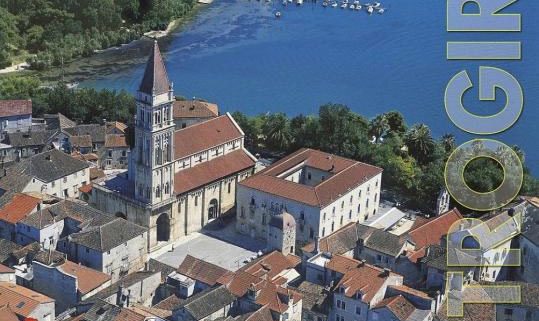
Trogir
Trogir è una cittadina situata al centro della costa dalmata. Grazie alla vicinanza dell’aeroporto di Spalato (5 chilometri) e dell’autostrada (soli 15 chilometri) Trogir e i porti e le isole vicine sono le destinazioni inevitabili durante la visita della Dalmazia.
Grazie alla felice posizione e protezine naturale il suo porto è la destinazione amata dai nautici di tutto il mondo. Nel raggio di poche centinaia di chilometri da Trogir si trovano numerose città importanti come Dubrovnik, Sebenico e Zara, nonché alcuni dei più bei parchi nazionali croati.
Trogir fu fondata dai coloni greci nel III secolo a.C. Nel corso dei secoli fu conquistata dai romani, dai bizantini, dagli ungari, dalla Venezia e da Napoleone. Nel medioevo vide il suo maggiore splendore culturale, umanistico e artistico quando la costruzione delle mura cittadine e delle torri sul nucleo antico diede la forma principale alla città. Grazie alle numerose costruzioni romaniche, gotiche e rinascimentali Trogir oggi è considerata la meglio conservata città romanico-gotica dell’Europa Centrale ed è iscritta nella Lista del Patrimonio Mondiale dell’UNESCO.

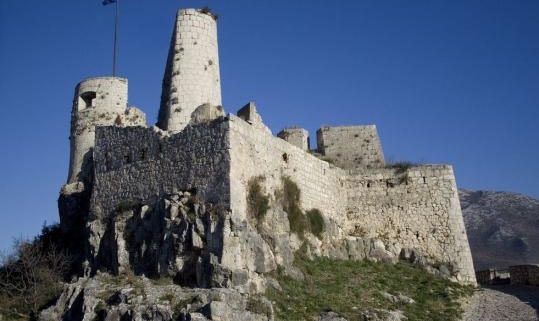
Clissa (Klis)
Il monte Klis collega le montagne Mosor nell’est e Kozjak nell’ovest. Nel corso della storia fu meta di molti popoli, dagli Illiri ai Veneziani e i Turchi che lo consideravano la porta della Dalmazia che apriva la strada verso l’antica Salona e Spalato.
In cima del monte si è formato un piccolo abitato fortificato dopo dai Turchi. La famosa fortezza di Klis è simbolo del paese e simboleggia anche la resistenza dei Dalmati uniti nella lotta contro i Turchi. Ancor oggi Klis collega la costa con il retroterra della Dalmazia centrale perché vi passano la vecchia e la nuova strada che portano all’interno del Paese.
La fortezza di Klis dista 15 km da Spalato.

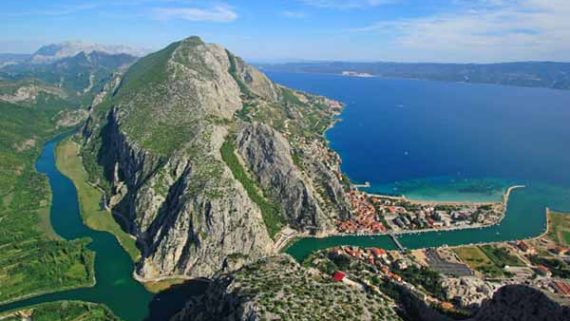
Omiš
Omiš è una pittoresca città mediterranea situata alla foce del fiume Cetina. Oggi è la città del festival delle klape, nel passato fu la città dominata dai corsari per più di due secoli (dal 1221 al 1444) e la città accanto alla quale nacque la gloriosa Repubblica di Poljica – il primo esempio del genere in Europa.
Omiš si trova nel cuore della Dalmazia, tra Spalato e Makarska, due importanti centri turistici. Dopo una burrascosa storia dai tempi dell’antichità e dall’ inespugnabile fortezza medievale dei corsari, è diventata centro della riviera turistica da una bellezza eccezionale.

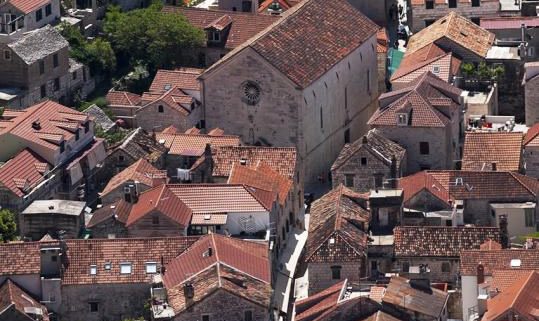
Sebenico (Šibenik)
La città di Sebenico è il capoluogo della Regione di Sebenico e Tenin (Knin), distante da Spalato circa 85 km.
È ubicata nella parte centrale della costa croata, in un pittoresco golfo frastagliato nel quale sbocca il fiume Krka.
Sebenico è la più antica città croata sull’Adriatico. Il suo monumento più noto è la Cattedrale di San Giacomo, la più importante creazione architettonica eretta in Croazia nel periodo del ‘400 e ‘500. Per il suo eccezionale valore culturale, dall’anno 2000 la Cattedrale è inserita nell’elenco del patrimonio mondiale dell’UNESCO.

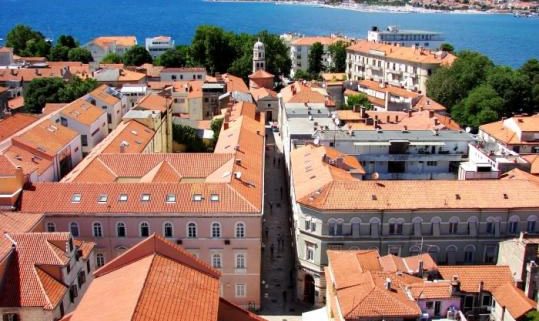
Zara (Zadar)
La città di Zara dista da Spalato circa 168 km. È il capoluogo della Regione zaratina e dell’area più larga della Dalmazia Settentrionale.
Zara è una città molto antica, ha una storia lunga 3000 anni. Per la prima volta viene nominata nel IV secol a.C., sotto il nome Jader, come un insediamento della tribù illirica dei Liburni.
La città abbonda di monumenti storici e culturali tra cui i più noti sono il Foro romano e la chiesa di San Donato. Negli ultimi anni sono famose anche le sue installazioni dell’ Organo marino e del Saluto al Sole.


 Italiano
Italiano Hrvatski
Hrvatski English
English Deutsch
Deutsch
